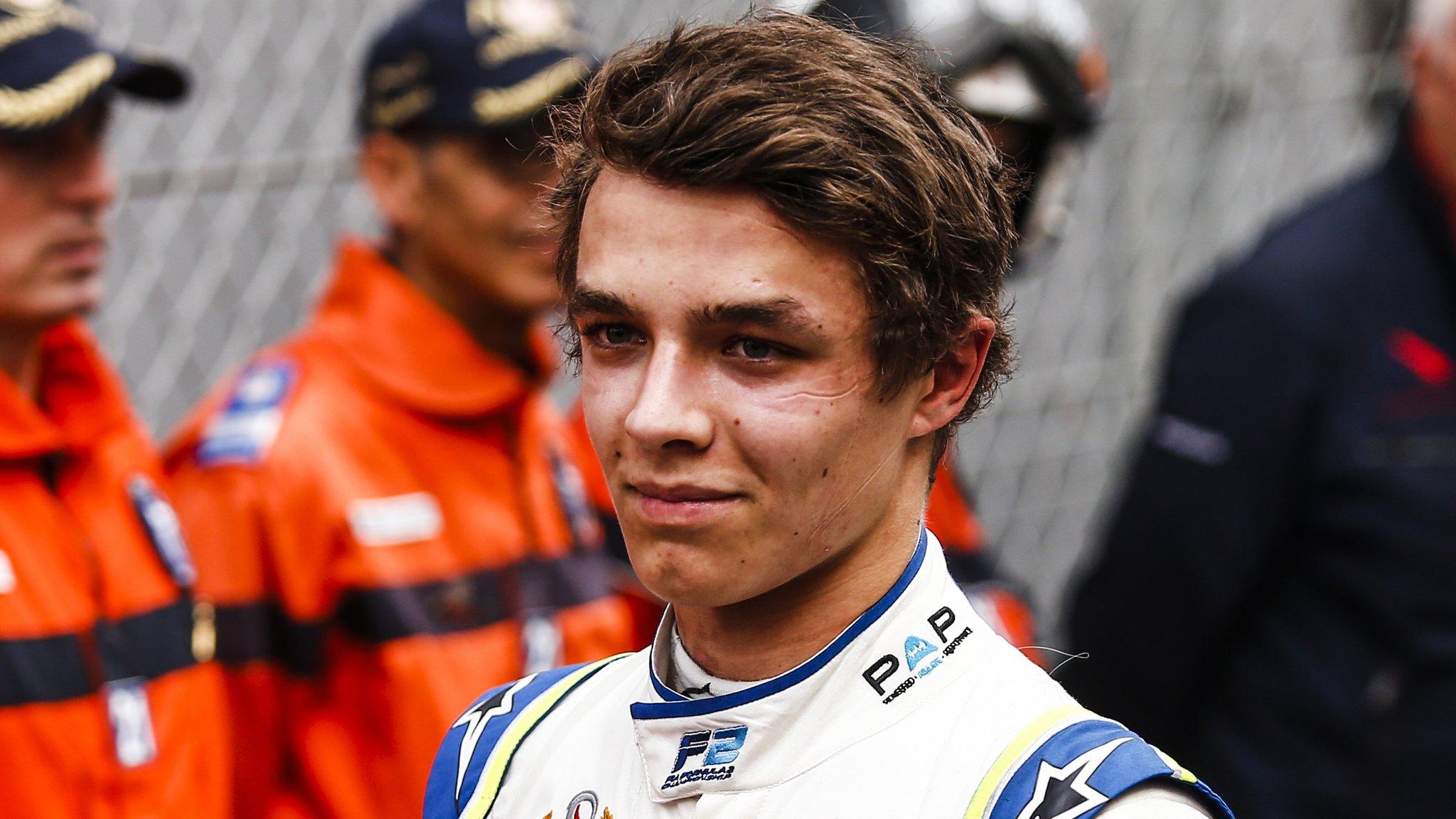Canadian Grand Prix: 'Why Ferrari's win is Mercedes' wake-up call'
- Published
- comments
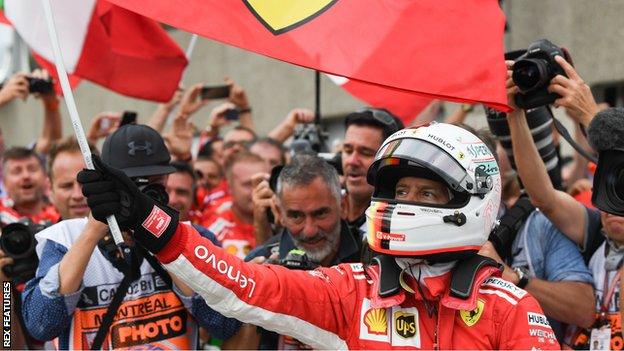
Vettel dismissed complaints about another less-than-thrilling race
The Canadian Grand Prix was not the most memorable of motor races, to say the least, but its implications could be profound.
At a track that Lewis Hamilton has effectively owned from the start of his Formula 1 career, taking six wins in the previous 10 races, Sebastian Vettel and Ferrari put in the sort of performance to give the Mercedes driver nightmares. It also meant he returned to the championship lead.
Mercedes F1 boss Toto Wolff described it as a "major wake-up call" for his team but the reality, as Hamilton pointed out after the race, is that Ferrari have had the fastest car pretty much all year - even if only by a sniff. So the lead of the points race is exactly where Vettel ought to be at the one-third mark of the season.
The margin of the win was not huge - seven seconds after 70 laps. Or 68, after the results were readjusted by two laps as regulations dictate after model Winnie Harlow, a friend of Hamilton, waved the chequered flag a lap too early.
That computes to 0.1secs a lap, pretty much exactly the margin by which Vettel took the pole position that was the foundation for the win. But that belies the almost total control Vettel had over the race.
It would be wildly exaggerating to say the German now has the same over the championship, but this race has certainly made Mercedes sit up and take notice.
What went wrong for Mercedes - and right for Ferrari
In fact, Vettel could and should be further ahead in the championship.
A poor strategy call, a safety car and a collision for which Vettel was blameless turned what might have been a win - and certainly a podium - in China to eighth place. In Azerbaijan, another misguided strategy call and then a small but important driver error turned a win into a fourth place.
There were no such blunders in Canada. After a difficult Friday, Ferrari turned things around and Vettel took a superb pole as Hamilton under-performed at a circuit where he usually excels perhaps more than at any other. From there, all Vettel needed was a good start and no problems, and the race was his.
For Mercedes, the weekend began to unravel almost before it had started, and a series of issues mounted up.
All the engine manufacturers were due to bring engine upgrades to this race but at the last minute Mercedes had to delay theirs because of a reliability concern that emerged during its final run on the test bed.
That meant Mercedes were using an engine coming towards the end of its life, and therefore down on peak power by somewhere between five and 10bhp, while all others had upgrades of 10-25bhp, depending on the company.
Too few of the fastest tyres
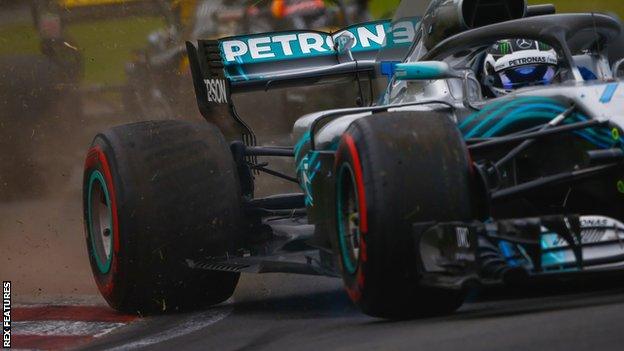
Mercedes' decided to choose the fewest number of hyper-soft tyres
The next problem for Mercedes was tyres, or the lack of the hyper-soft variety of them. Mercedes chose to ask for only five sets of the softest and most fragile rubber, a decision that all teams had to make three months ago.
That was two fewer than any other team and it meant Mercedes, wanting four sets to cover all eventualities in qualifying, could not run them on Friday. That reduced set-up time on that tyre and ultimately, the team felt, led to them perhaps not getting as much out of it in the final top-10 qualifying shootout as they might have done.
Instead of his usual serene progress to pole, Hamilton was locking brakes and struggling, and he ended up behind his team-mate on the grid at the Circuit Gilles Villeneuve for only the second time in his career.
Mercedes' distaste for the hyper-softs stems back to their first run on them, in a tyre test in Abu Dhabi after the end of the 2017 season.
The tyre's high grip for a small number of laps but poor endurance on a longer run led the Mercedes engineers to decide it was a bad race tyre. From there, they decided not to run it at all in pre-season testing in March. And from there, they decided to limit their use of it as much as possible as they made their tyre choices for the early season races.
But it was a misguided approach, as is now becoming clear.
Mercedes might not have liked the hyper-soft, and it is only being used at a handful of races on the least tyre-demanding tracks this year, but being used it is.
And at a time when overtaking is perhaps harder than ever in F1 history (more of which in a moment), qualifying has taken on an even greater importance in the overall picture of a race weekend.
Now, too late, it is dawning on Mercedes that they have made a significant miscalculation.
"This is a championship that is going to be won and lost with the tiniest of margins," Wolff said, "and certainly not having given the drivers enough track time on the hyper is something if we could have changed we would have changed.
"Was it the decisive factor? Probably not. If we had brought the engine upgrade it would have been an advantage. And we just can't miss out on the tiniest of upgrades. For the smallest of mistakes we will be penalised, and the same applies to our competitors. This is going to make the difference between winning and losing."
Engine problems in the race
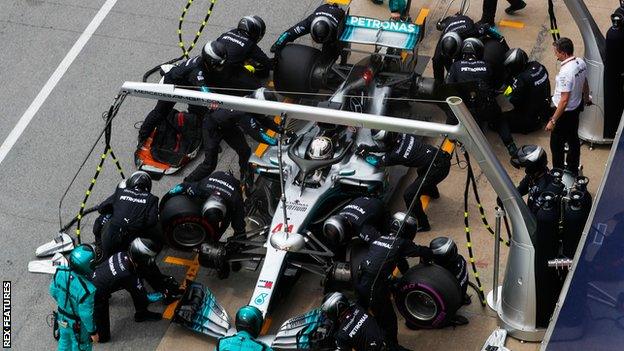
Hamilton could only manage a fifth-placed finish in Montreal after struggling with engine temperature
The final nail in the coffin for Hamilton's race was an overheating problem that led to power drop-outs from the very start of the race - he had his first accelerating away from the grid.
"I started the race and I was thinking I have got to attack," he said, "but I had no power."
The engine was overheating in the first stint, and Mercedes eventually had to bring Hamilton's pit stop forward to open extra cooling ducts in the car. Even so, the engine was down on power for the rest of the race, which handicapped Hamilton in his pursuit of Red Bull's Daniel Ricciardo, who had got ahead as a result of that early pit stop.
"It kept dropping in and out and I was just petrified," Hamilton said. "I was waiting for the moment it let go. I am incredibly grateful it kept going, take this loss with my head high and then hopefully have a better next couple of races."
Wolff said: "This year's championship is going to be decided by who makes the least mistakes brings the best development on to the PU (power unit) on every single weekend and that is the new reality.
"It is a three-way fight. Six cars can win races and you can't take anything for granted, you can't come to Montreal and think it is going to be a walk in the park. That is the kind of wake-up call you get."
Why was the race so dull - and what can be done about it?
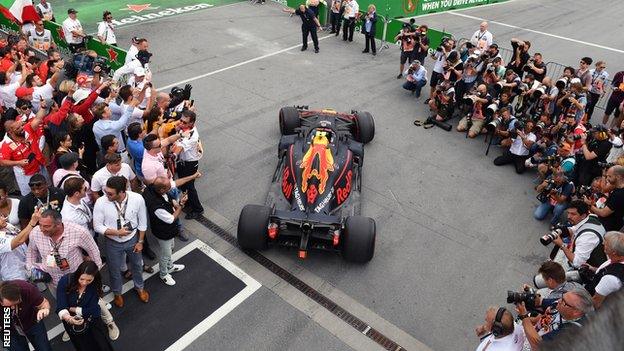
Verstappen had a better weekend than most of his rivals
For the second race in succession, the action out on track was almost non-existent. And after the initial safety car following the nasty crash between Lance Stroll's Williams and Brendon Hartley's Toro Rosso on the opening lap, there was virtually no on-track overtaking at all.
As Hamilton said: "I heard today there were less overtakes than in Monaco, or something like that. And a couple of my friends said the most exciting part of the race was the crash at the beginning. If that is really what F1 is about, then that is sad to hear, because there is so much more to it."
In Monaco, this is to be expected, but for there to be so few overtaking manoeuvres at a track famed for its great racing is a serious concern.
Fingers are pointing in various directions. The wider cars introduced last year with greater downforce certainly do not help - the more downforce a car has, the more it loses behind another car and therefore the harder it is to follow closely and overtake.
The tyres are also under the spotlight.
Last year, Pirelli was tasked with producing tyres the drivers could push hard on throughout races, after six years of lapping seconds off the pace on fragile tyres to make required stint lengths. But this was done by making harder tyres, and the result was a predominance of one-stop races, which some perceived to be bad thing.
This year, Pirelli has gone softer on compounds, having accepted that they were too conservative last year because of concerns about how fast the cars might be. The idea was to introduce more pit stops, but the result has been tyres which, while not as extreme as in the past in terms of thermal management, are heading back in that direction.
Vettel was central in the drivers' push for the more race-able tyres, but he had refused to answer a question on tyres after Monaco, when drivers were lapping seconds off the pace to manage the hyper-softs. In Canada, though, he admitted that "the tyres this year are a bit more vulnerable than last year".
After winning in Montreal, Vettel urged people not to get too carried away by the lack of excitement in Canada and Monaco.
"Life is like this," he said. "Racing is like this. It is not justified to criticise this race. I don't know if it was boring.
"I don't know why people today are so short-sighted. We had seven races this year. Some were phenomenal, some were boring, but next week the World Cup is starting and I promise you that a lot of the games will not be exciting, but people will still watch it. It can't always go up. There are no reasons, so don't look for the answer. Don't write anything. Write about something else. Some races are exciting and others are not."
Ricciardo, though, was one of many who think something needs to be done.
"I know everyone loves going fast and so do I," he said, "but I would rather go slower and have more fighting. I like the speeds but we'll see. The older guys normally have a pretty strong opinion on that and because they experienced Bridgestone and even Michelin [F1's previous suppliers] and following [other cars on those tyres], they have more experience and knowledge of what is possible. So I'll probably hear them out."
F1's new owners Liberty Media are looking at all aspects of the sport to try to improve it for 2021, when the rules and revenue split will be refined. Tyres, and their relationship to overtaking, are one of the major things on their agenda.
No end in sight to Williams' troubles
It was a dismal weekend for two of F1's most famous names. McLaren, I touched on after their worst qualifying performance of the year and BBC F1 analyst Jolyon Palmer will look at them in more depth in his column on Tuesday, following Fernando Alonso's second retirement in succession.
Williams, though, are arguably in even worse shape. Another woeful qualifying performance meant that for the first time this season they are now officially the slowest team on the grid, when taking an average of the fastest lap each car has done on each weekend.
Upgrades to the car are in the pipeline, but insiders say that there are no clear answers as to exactly what is making it so slow. And if you don't know what is causing a problem, it's hard to fix it.
Williams have already parted company with their chief designer and head of aerodynamics in the past month or so, and people are now starting to look for answers to chief technical officer Paddy Lowe, who joined the team from Mercedes at the start of last year, amid high hopes.
- Published10 June 2018
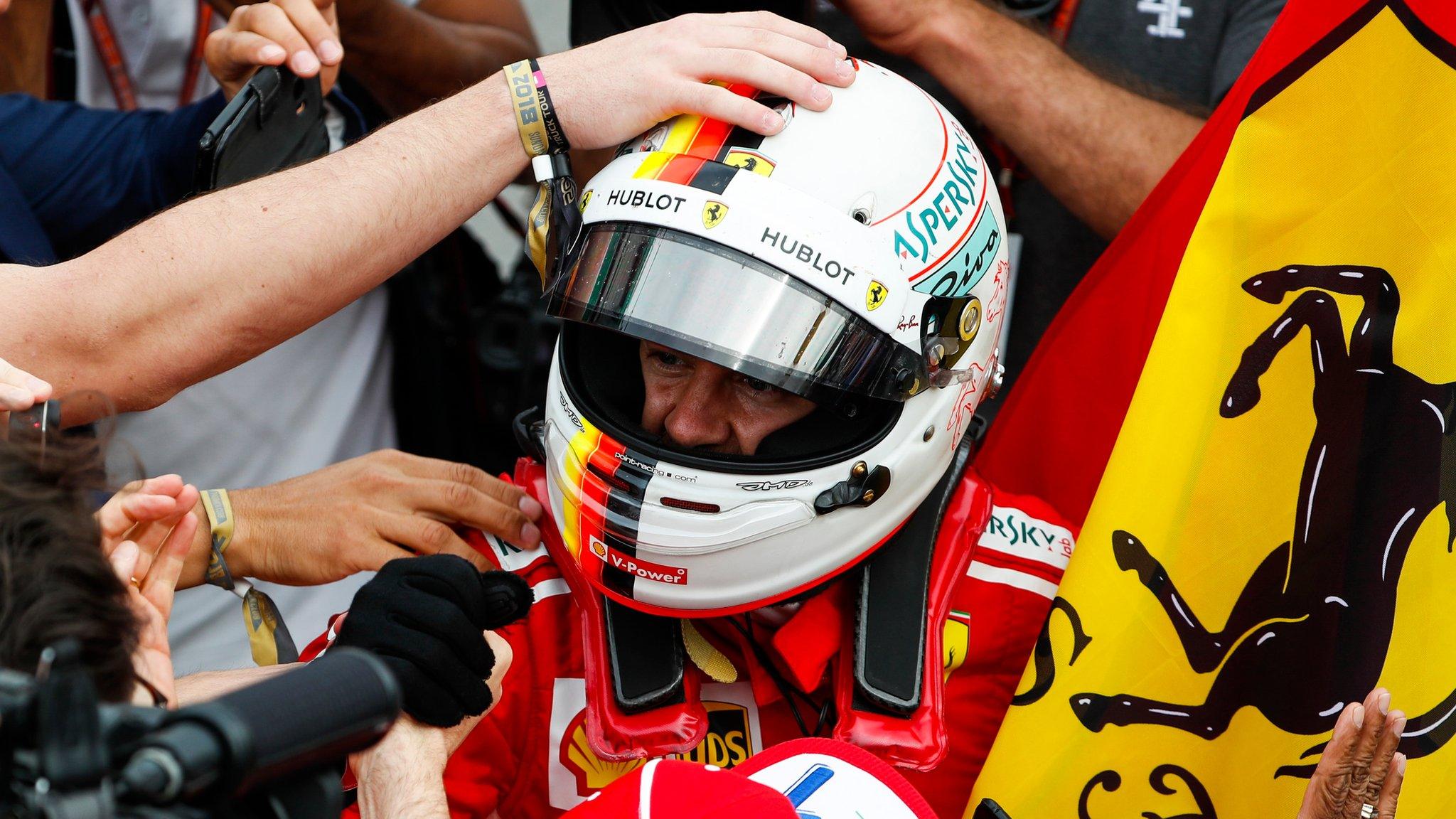
- Published6 June 2018
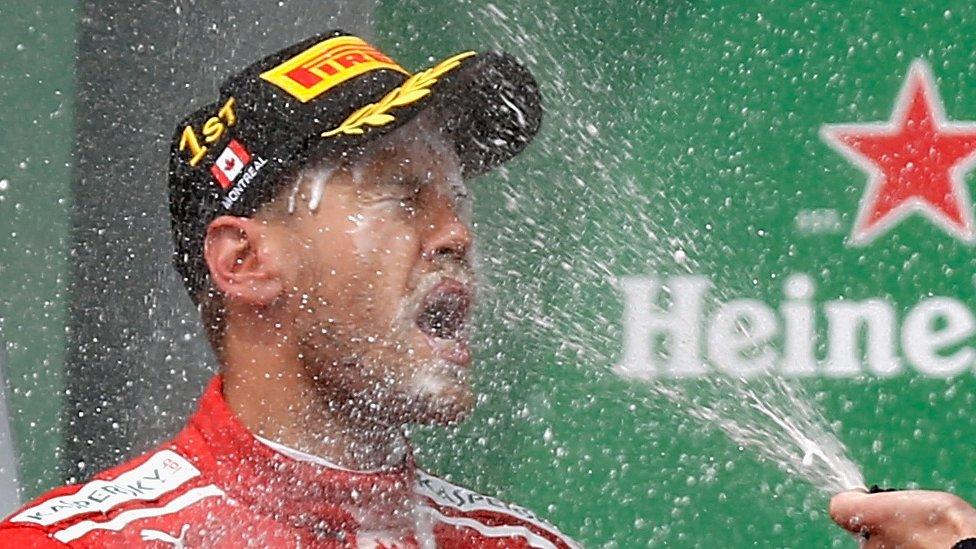
- Published10 June 2018
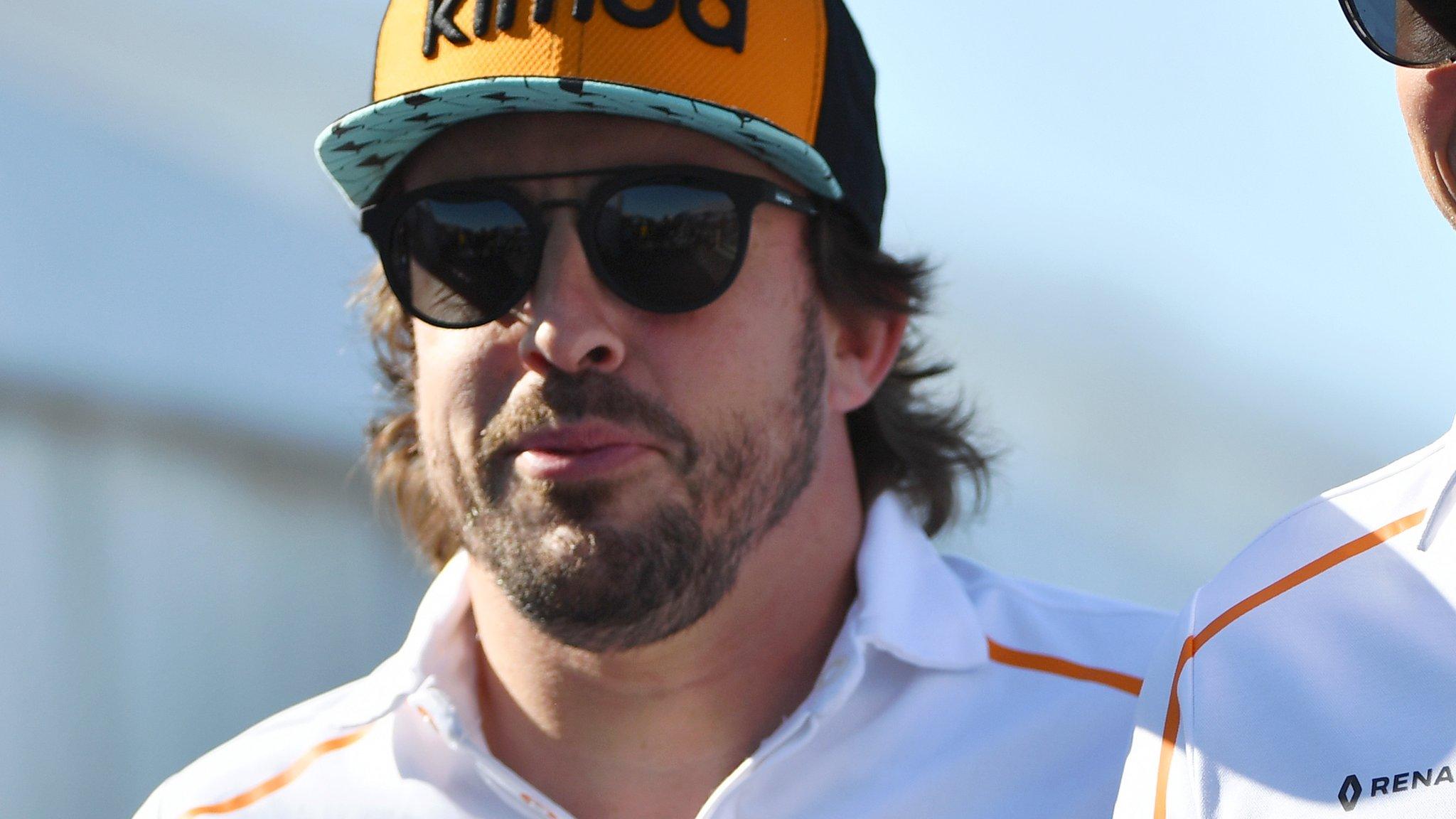
- Published9 June 2018
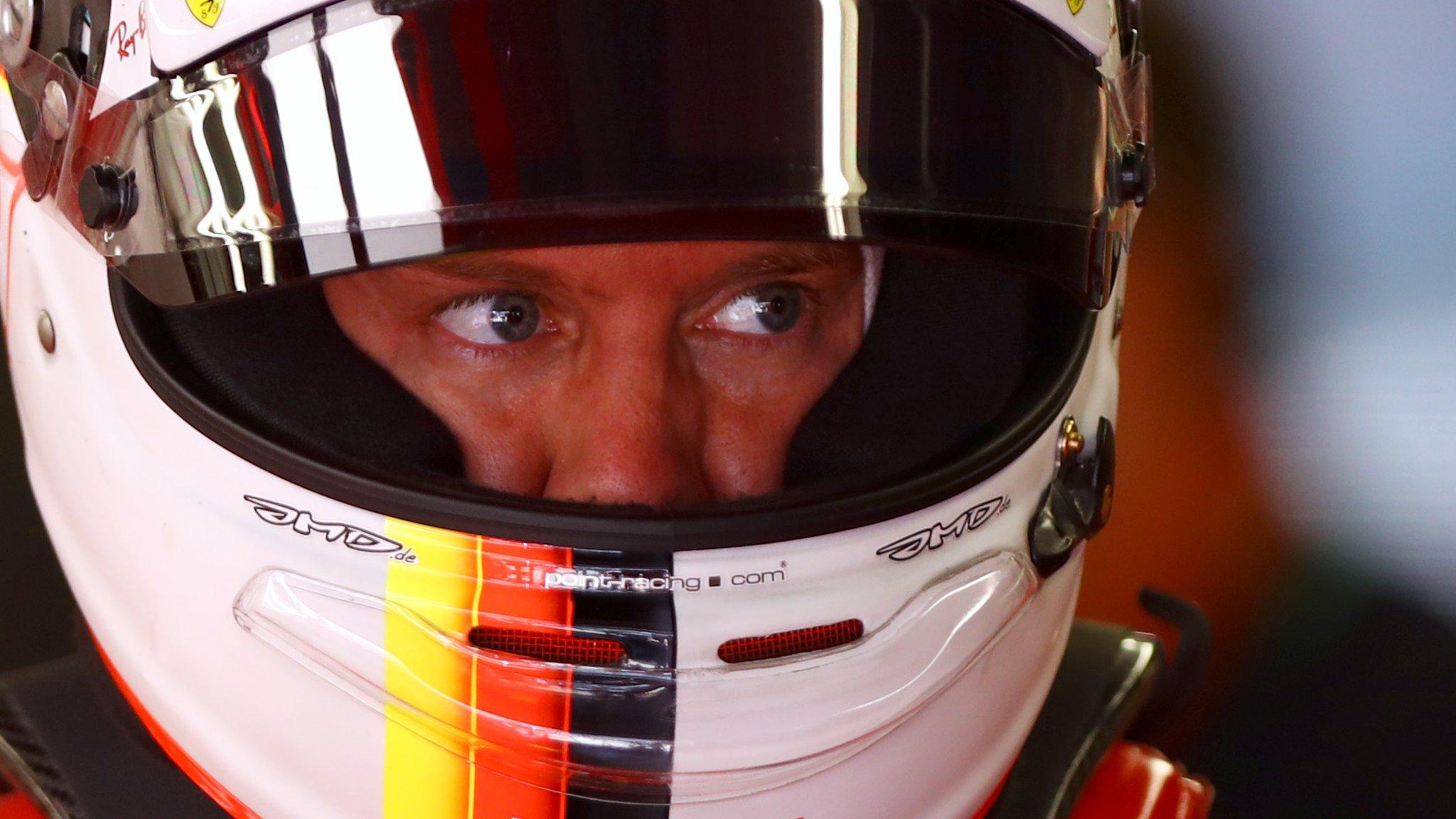
- Published3 June 2018
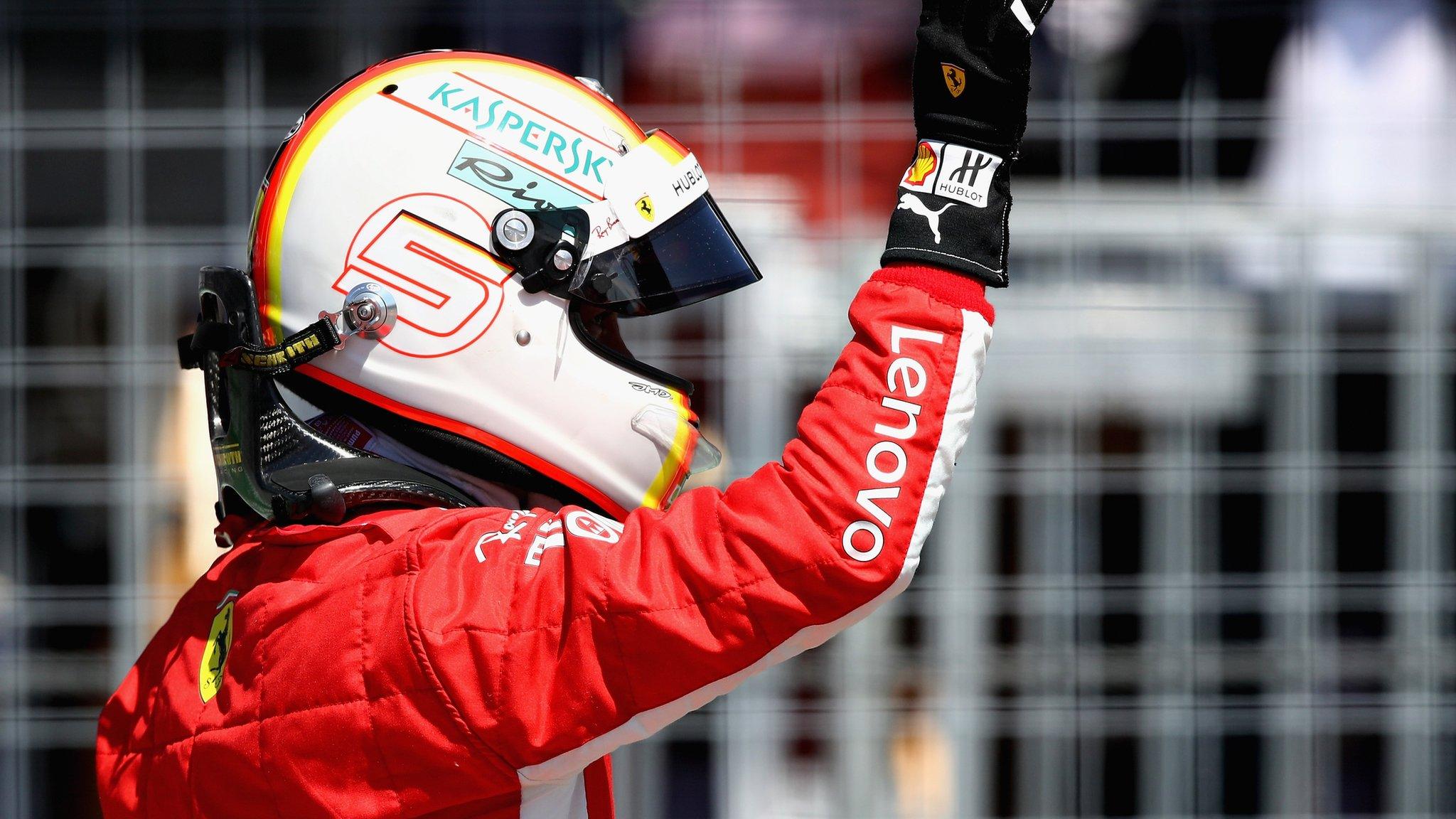
- Published8 June 2018
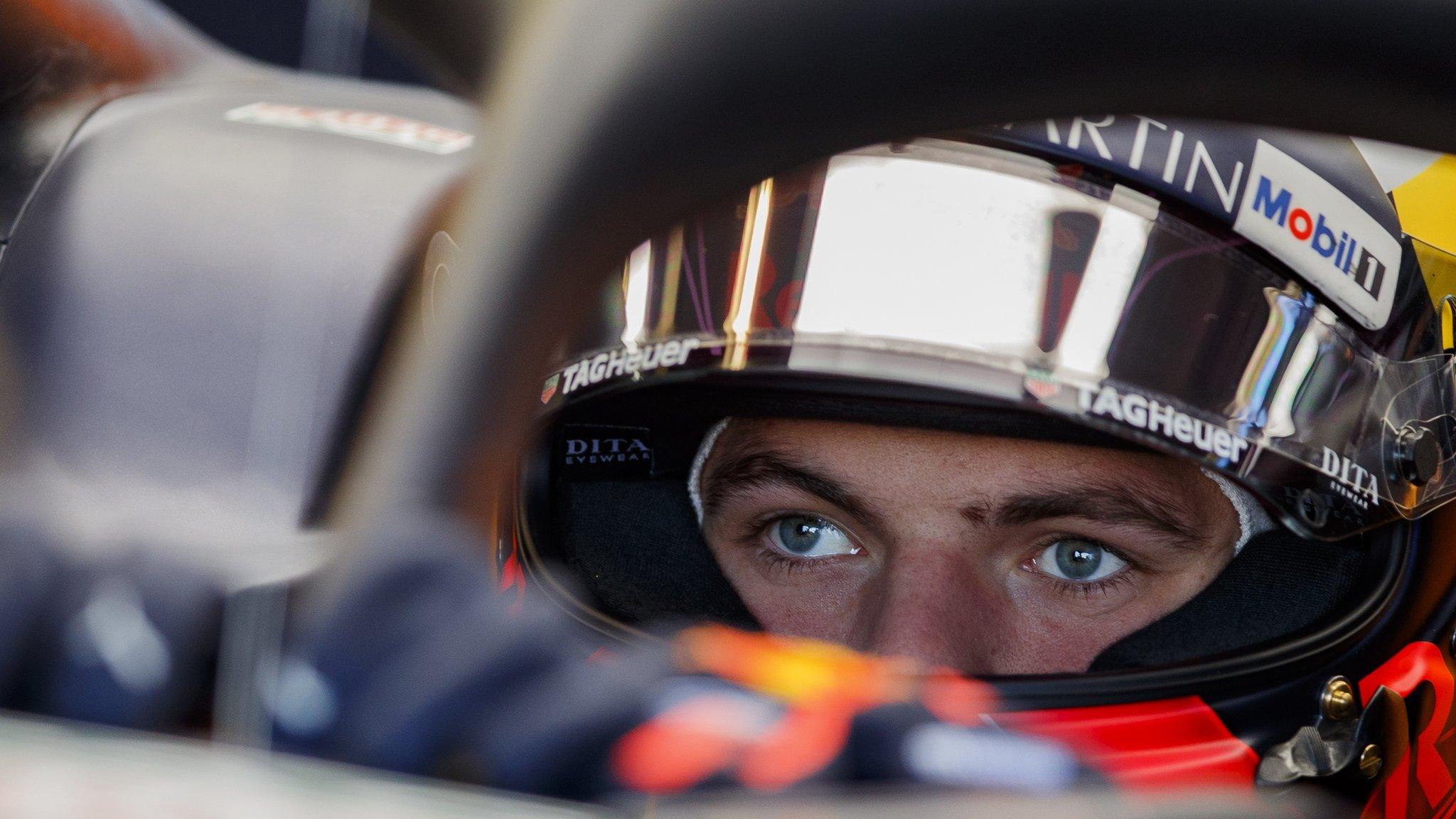
- Published4 June 2018
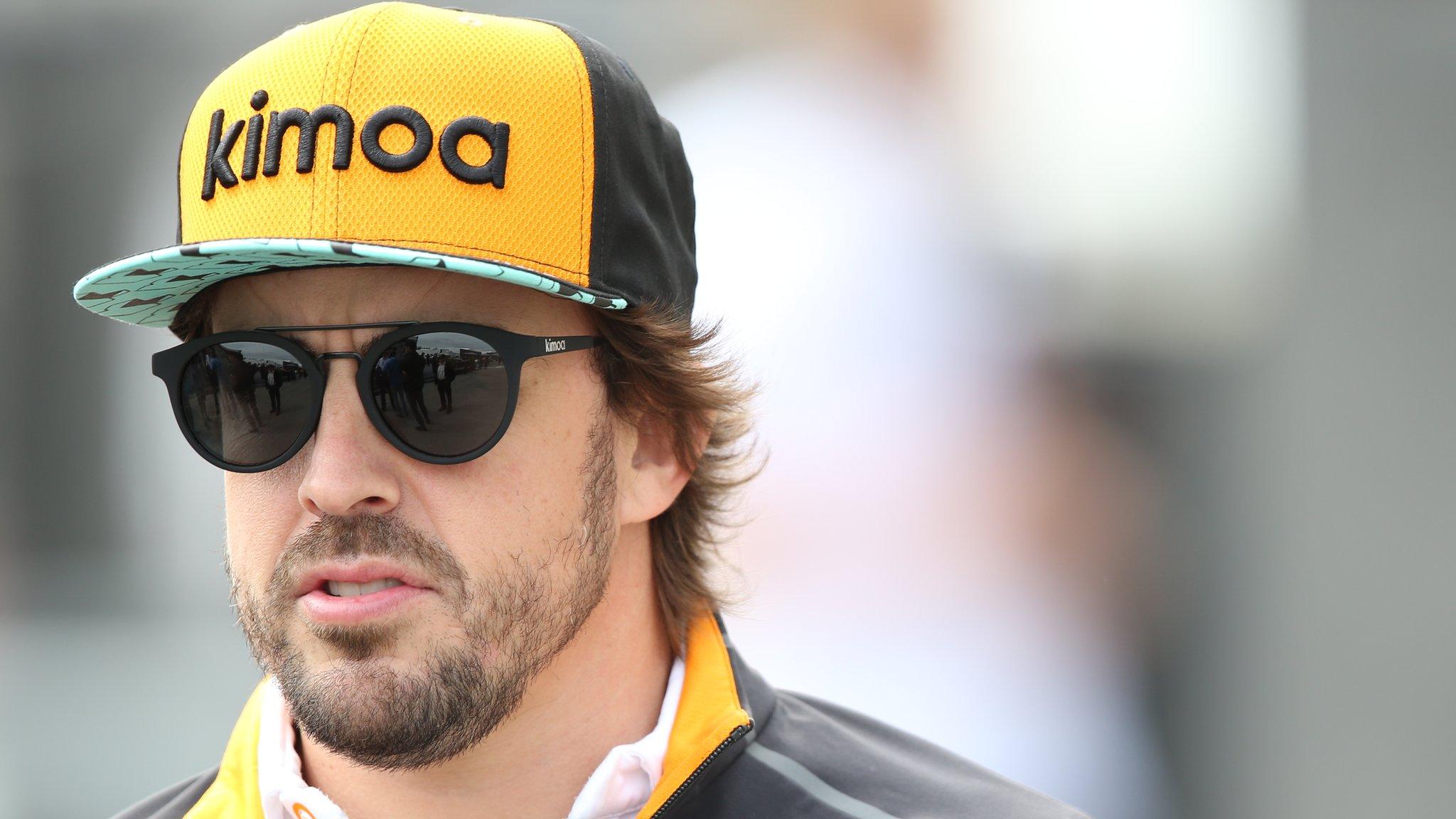
- Published8 June 2018
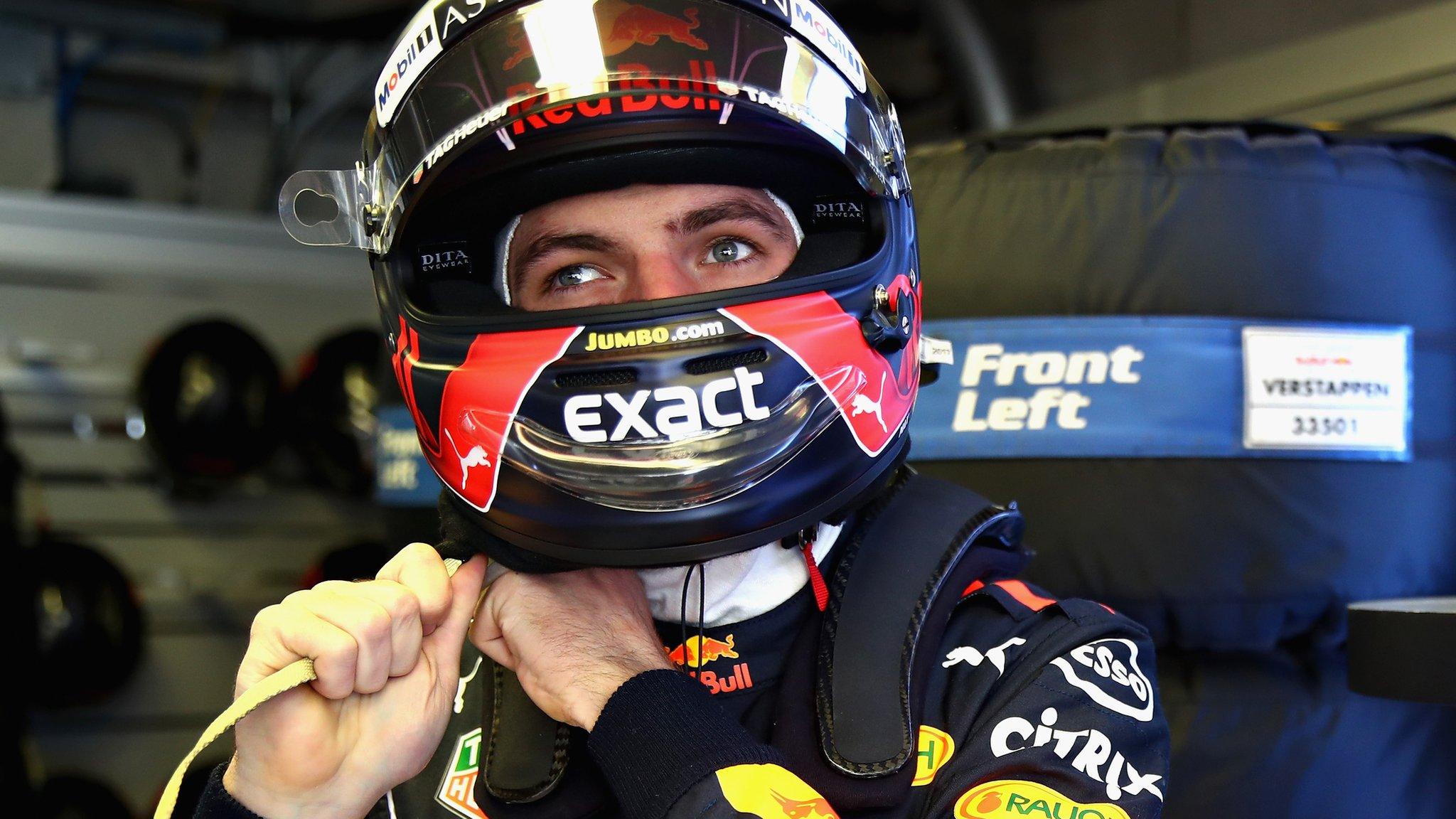
- Published5 June 2018
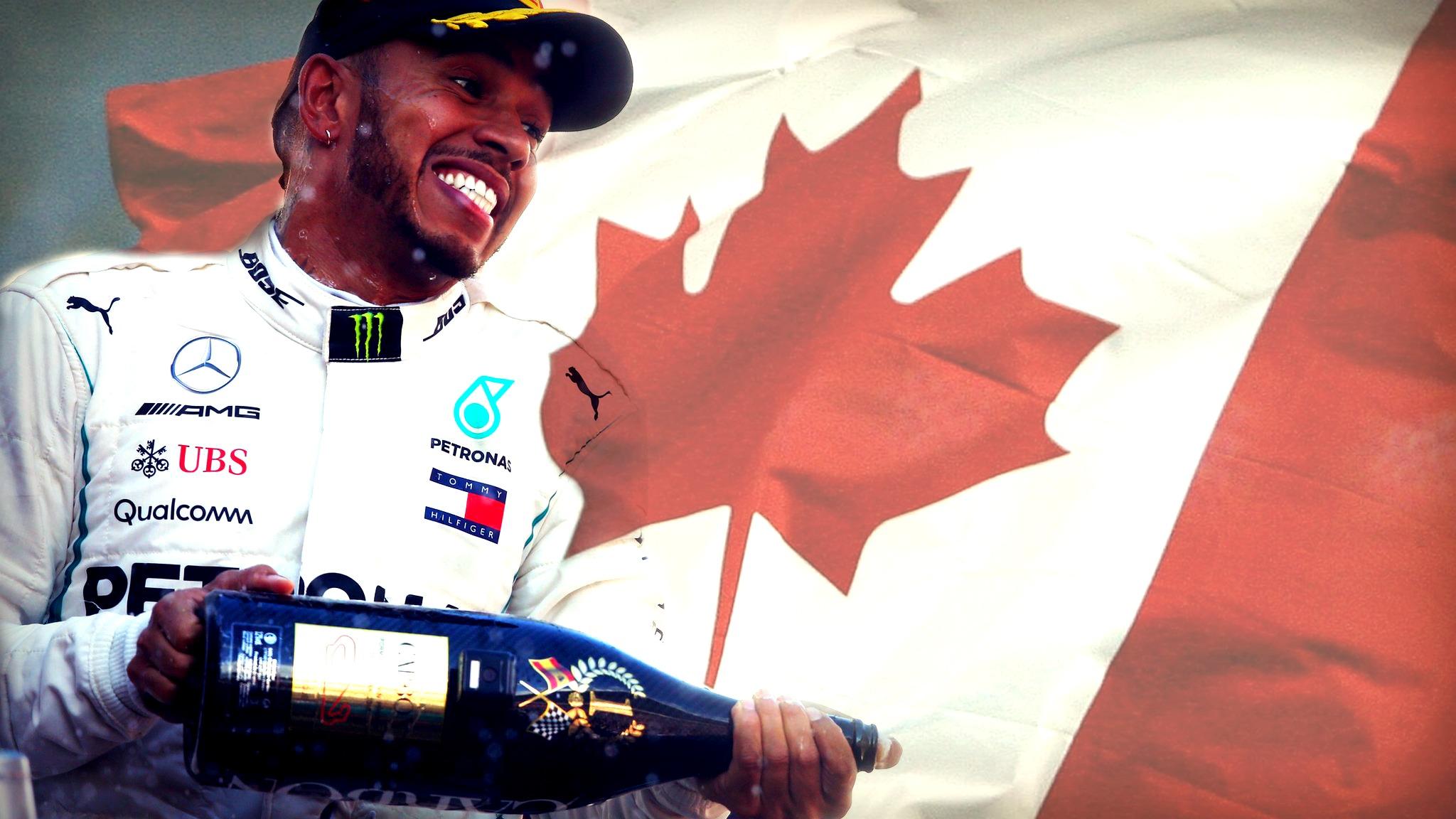
- Published7 June 2018
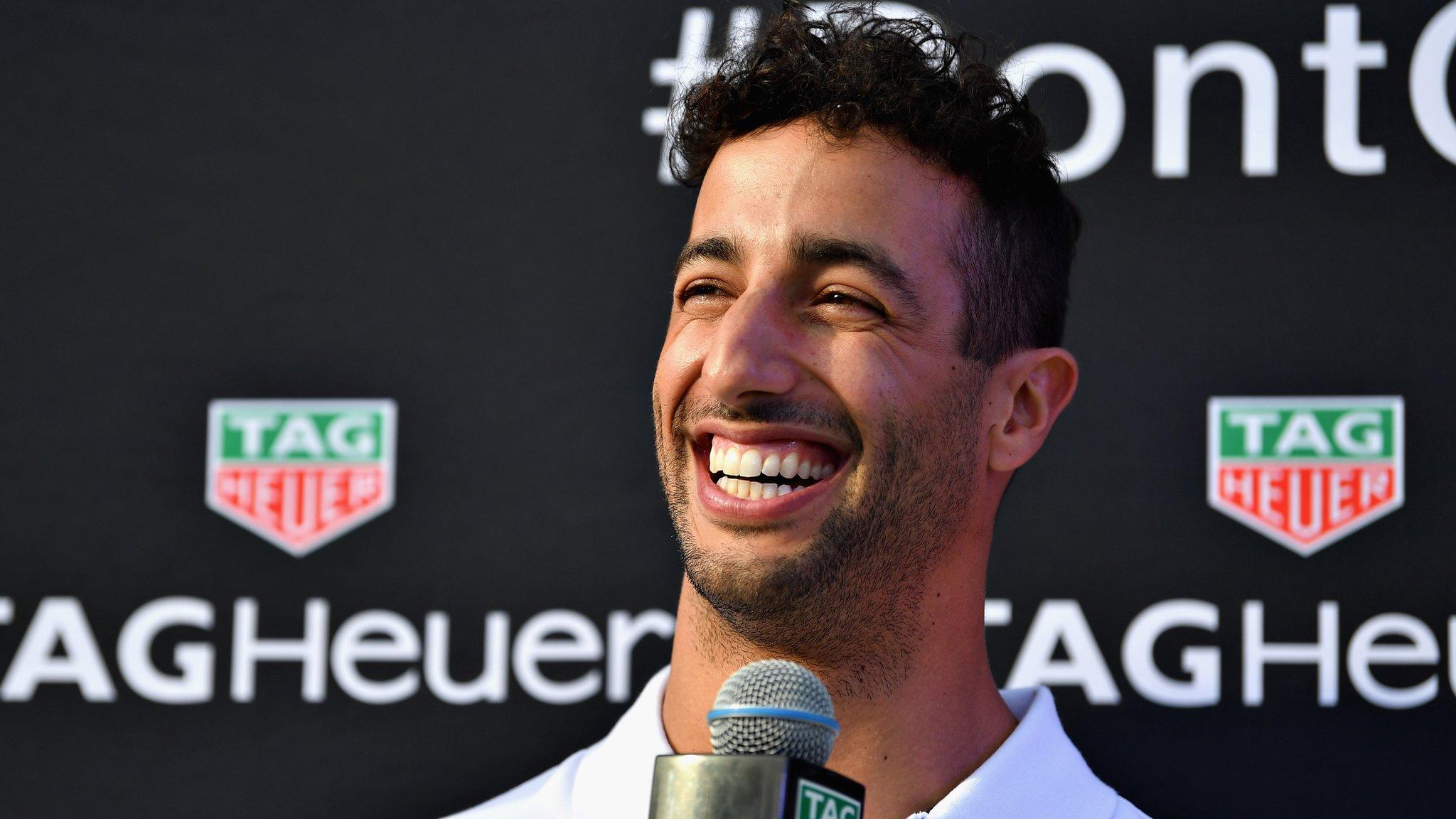
- Published7 June 2018
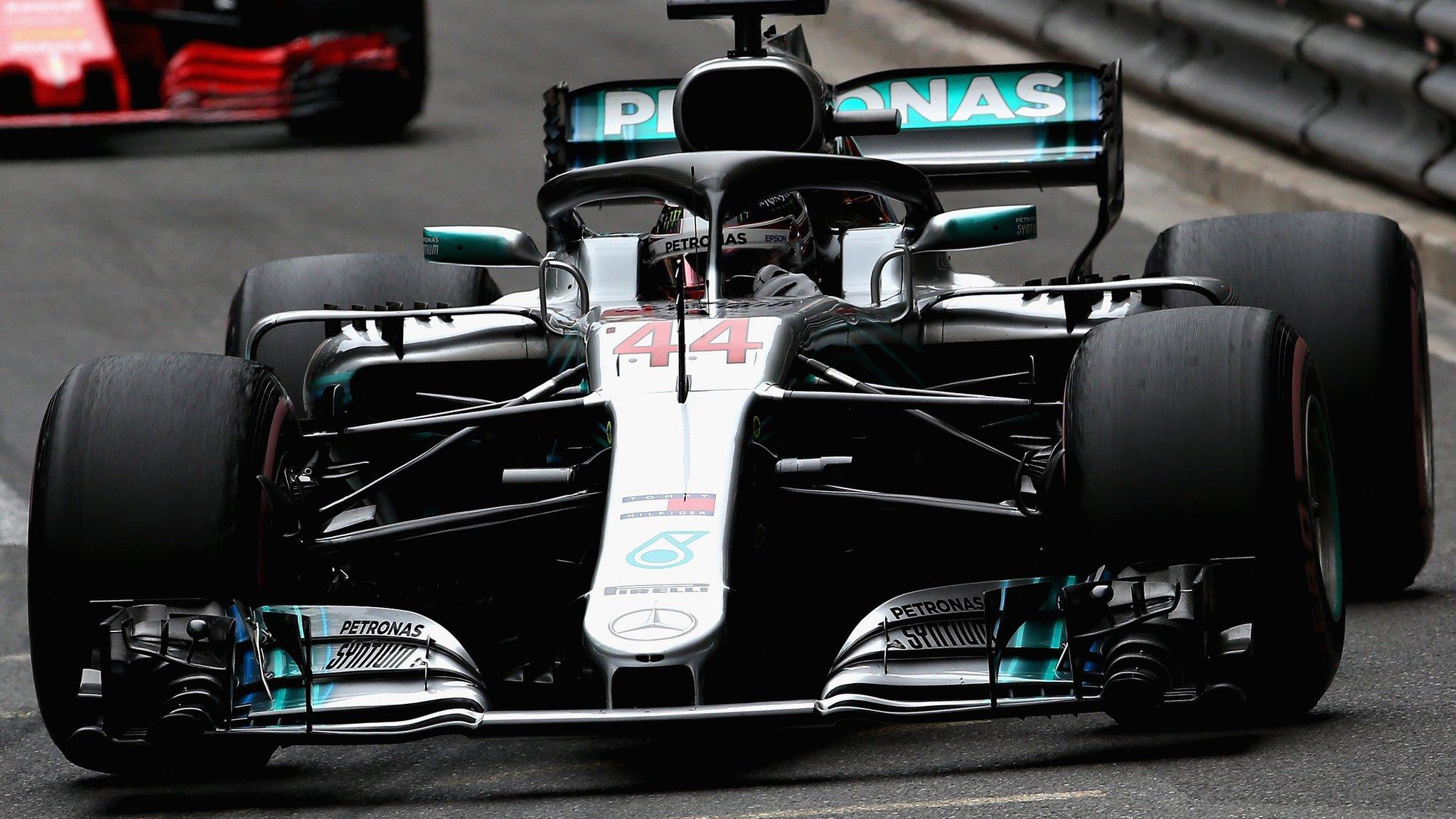
- Published21 November 2018

- Published7 June 2018

- Published10 June 2018
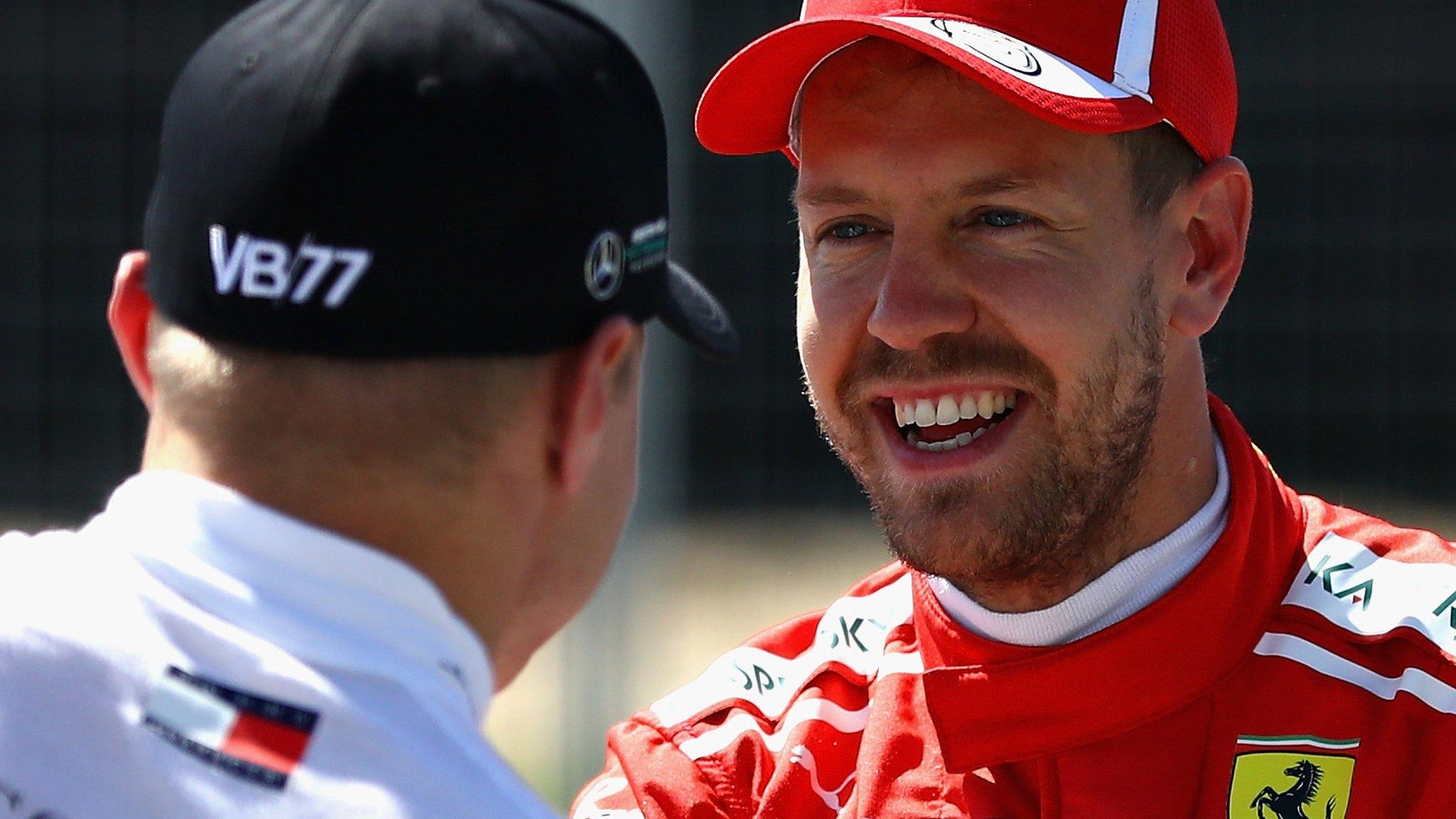
- Published6 June 2018
